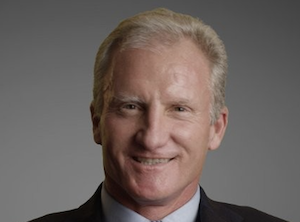Note: This article is the second in a series of interviews highlighting the work of interesting family office investors.
 The Gideon Hixon Fund leverages generations of family business experience dating back to 1850 to provide assistance and capital to exceptional entrepreneurs who have ideas that change the world for the better. Frank Foster has served as the Managing General Partner of the Gideon Hixon Fund since 2004 and a General Partner since 1990. He is also a Managing Director of DFJ Frontier, a Draper Fisher Jurvetson affiliated venture capital fund with $80M under management focused on seed and early stage technology companies.
The Gideon Hixon Fund leverages generations of family business experience dating back to 1850 to provide assistance and capital to exceptional entrepreneurs who have ideas that change the world for the better. Frank Foster has served as the Managing General Partner of the Gideon Hixon Fund since 2004 and a General Partner since 1990. He is also a Managing Director of DFJ Frontier, a Draper Fisher Jurvetson affiliated venture capital fund with $80M under management focused on seed and early stage technology companies.
Tell me a little about the family office and how it came to be.
The Gideon Hixon Fund is the venture arm of the Hixon family, a sixth generation family business. It began in 1990 and is run by a team of 4 with a family governance board. It is an evergreeen fund with both direct and fund investments. We have over 20 direct investments and 20 fund investments.
Does your family office have investment guidelines or preferences or a specific impact investing mission?
The fund has traditionally invested in managers with funds under $100m and then worked closely with the managers to identify the most promising companies in the portfolio. Over the past 5 years the family has tried to integrate its venture activities with its core business in real estate and has been investing under a strategy called IARE (innovation affecting real estate). The focus has been on managers who serve the PropTech, TravelTech, InsureTech and Mobility markets and then use the real estate company to help validate and hopefully employ the technologies.
Has the office been doing early stage investing since its founding?
Yes, we have always had a focus on early stage, though we have done a few later stage deals over the past 3 years.
How big a part of your portfolio is the early stage work?
Approximately 75%.
Where does your best deal flow come from? Do you syndicate with other offices, VC funds or angel groups?
Our best deal flow comes from our fund managers that we work closely with.
Would you consider yourself an active or passive early stage investor?
Actually, we are somewhere in between. We have taken Board seats and in some instances been very involved with the growth of the company. In general we tend to be part of a syndicate and try to be supportive and involved investors, especially given our active real estate operations.
Do you lead rounds or do you tend to follow other leads? What's your view on taking a board seat?
We generally do not lead rounds.
Do you have a thesis or focus on any particular type of founder, company or industry? Are there certain kinds of startup companies you steer away from?
We are looking for companies/technologies that can improve the business of real estate. We used to do more life science and cleantech, but have refined our focus.
Are there some portfolio companies you are especially proud to be working with or simply would like to highlight?
We have had some strong winners recently. Instructure, Hippo, Sonder and soon Inspirato have all become multi-billion dollar exits.
If you could give entrepreneurs one piece of advice about working with you, what would it be?
As a real estate family, with multiple property types and concentration in one area (South Texas) we believe we can help bring real market insights and customers to the companies we work with. We look at this through the lens of the customer and tend to be long term supportive investors.
Stay tuned for additional interviews as The Seraf Compass continues to profile interesting family offices, women investors, impact investors, and small funds.

